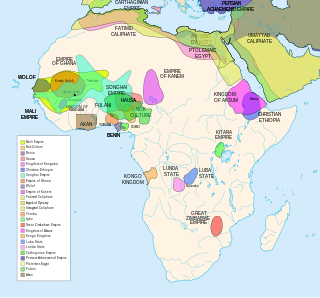Sultanate of Morocco may refer to:
- Alawi dynasty, Morocco's reigning dynasty
- List of rulers of Morocco, including the sultans from various dynasties
- History of Morocco, the history of Morocco's Sultanates
Sultanate of Morocco may refer to:

Sultan is a position with several historical meanings. Originally, it was an Arabic abstract noun meaning "strength", "authority", "rulership", derived from the verbal noun سلطة sulṭah, meaning "authority" or "power". Later, it came to be used as the title of certain rulers who claimed almost full sovereignty without claiming the overall caliphate, or to refer to a powerful governor of a province within the caliphate. The adjectival form of the word is "sultanic", and the state and territories ruled by a sultan, as well as his office, are referred to as a sultanate.
The Banū Hāshim is an Arab clan within the Quraysh tribe to which Muhammad belonged, named after Muhammad's great-grandfather Hashim ibn Abd Manaf.
Idris may refer to:
The Sayyid dynasty was the fourth dynasty of the Delhi Sultanate, with four rulers ruling from 1414 to 1451 for 37 years. The first ruler of the dynasty, Khizr Khan, who was the Timurid vassal of Multan, conquered Delhi in 1414, while the rulers proclaimed themselves the Sultans of the Delhi Sultanate under Mubarak Shah, which succeeded the Tughlaq dynasty and ruled the Sultanate until they were displaced by the Lodi dynasty in 1451.
Al-Mustansir, more fully al-Mustansir billah, is a Muslim regnal surname and may refer to:

The Qutb Shahi dynasty was a Persianate Shia Islamic dynasty of Turkoman origin that ruled the Sultanate of Golkonda in southern India. After the collapse of the Bahmani Sultanate, the Qutb Shahi dynasty was established in 1512 AD by Sultan-Quli Qutb-ul-Mulk, better known though less correctly referred to in English as "Quli Qutb Shah".

Muhammad bin Tughluq, also named Jauna Khan as Crown Prince, also known by his epithets, The Eccentric Prince, or The Mad Sultan, or The Wisest Fool was the eighteenth Sultan of Delhi. He reigned from February 1325 until his death in 1351. The sultan was the eldest son of Ghiyath al-Din Tughluq, founder of the Tughlaq dynasty. In 1321, the young Muhammad was sent by his father to the Deccan Plateau to fight a military campaign against the Kakatiya dynasty. In 1323, the future sultan successfully laid siege upon the Kakatiya capital in Warangal. This victory over King Prataparudra ended the Kakatiya dynasty.
Muhammad was an Islamic prophet and a religious and political leader who preached and established Islam.
Seljuk or Saljuq may refer to:

The Sultanate of Yogyakarta is a Javanese monarchy in Yogyakarta Special Region, in the Republic of Indonesia. The current head of the sultanate is Hamengkubuwono X.
Yahya, also spelled Yehya, is an Arabic male given name. It is an Arabic form of the given name John, originally Hebrew Yohanan, i.e. primarily John the Baptist, who is known as Yahya ibn Zakariyya in Islam, and is considered a prophet in Islam. For this reason, Yahya is a comparatively common name in the Muslim world. The related Biblical name of Jehiah has the Arabic form Yaḥiyyā يَحِيَّى., having the same Arabic consonantal text as the name Yahya does.

Islam in Africa is the continent's second most widely professed faith behind Christianity. Africa was the first continent into which Islam spread from Southwest Asia, during the early 7th century CE. Almost one-third of the world's Muslim population resides in Africa. Muslims crossed current Djibouti and Somalia to seek refuge in present-day Eritrea and Ethiopia during the Hijrah ("Migration") to the Christian Kingdom of Aksum. Like the vast majority (90%) of Muslims in the world, most Muslims in Africa are also Sunni Muslims; the complexity of Islam in Africa is revealed in the various schools of thought, traditions, and voices in many African countries. Many African ethnicities, mostly in North, West and East Africa consider Islam their Traditional religion. The practice of Islam on the continent is not static and is constantly being reshaped by prevalent social, economic, and political conditions. Generally Islam in Africa often adapted to African cultural contexts and belief systems forming Africa's own orthodoxies.
The military history of Morocco covers a vast time period and complex events. It interacts with multiple military events in a vast area containing North Africa and the Iberian peninsula.

African empires is an umbrella term used in African studies to refer to a number of pre-colonial African kingdoms in Africa with multinational structures incorporating various populations and polities into a single entity, usually through conquest.
Shahi may refer to:
Feroz or variants such as Firuz, Firuze, Peroz or Piruz may refer to:
Al-Mutawakkil is an Islamic epithet (laqab), the title of Islamic prophet Muhammad in the Qur'an. In 847 AD, the tenth Abbasid caliph Al-Mutawakkil adopted this title. He ruled from 847 until 861. Al-Mutawakkil was the first and most famous bearer of this title among the rulers.

This article describes the process by which the territorial extent of Morocco came to be as it is now.